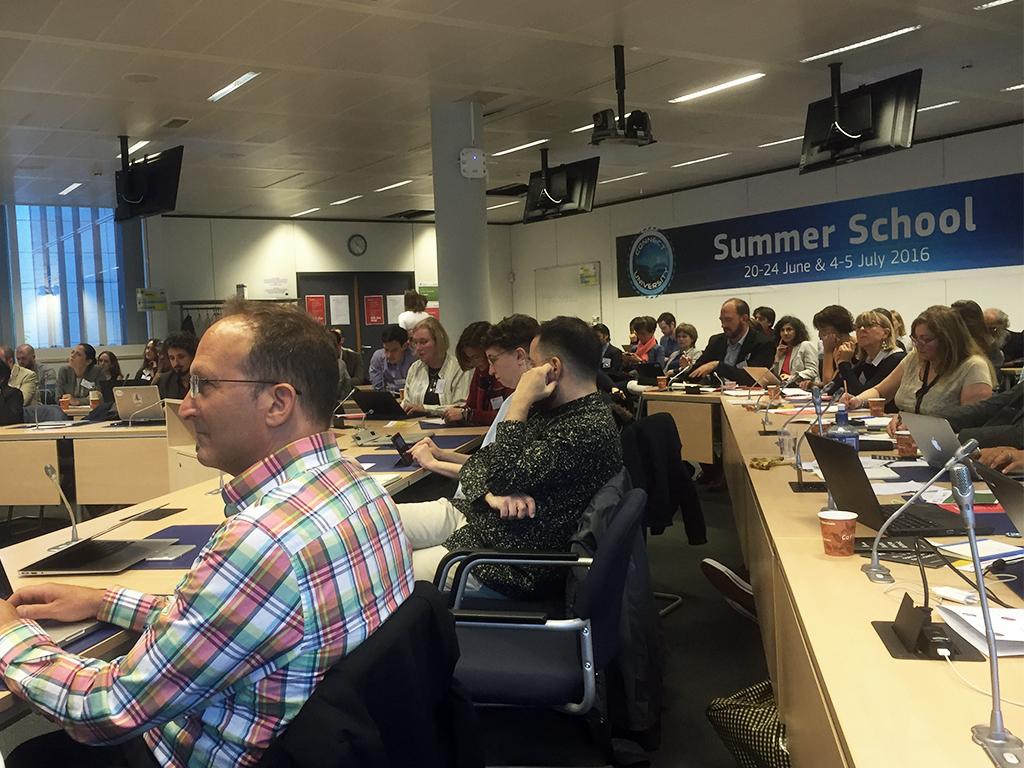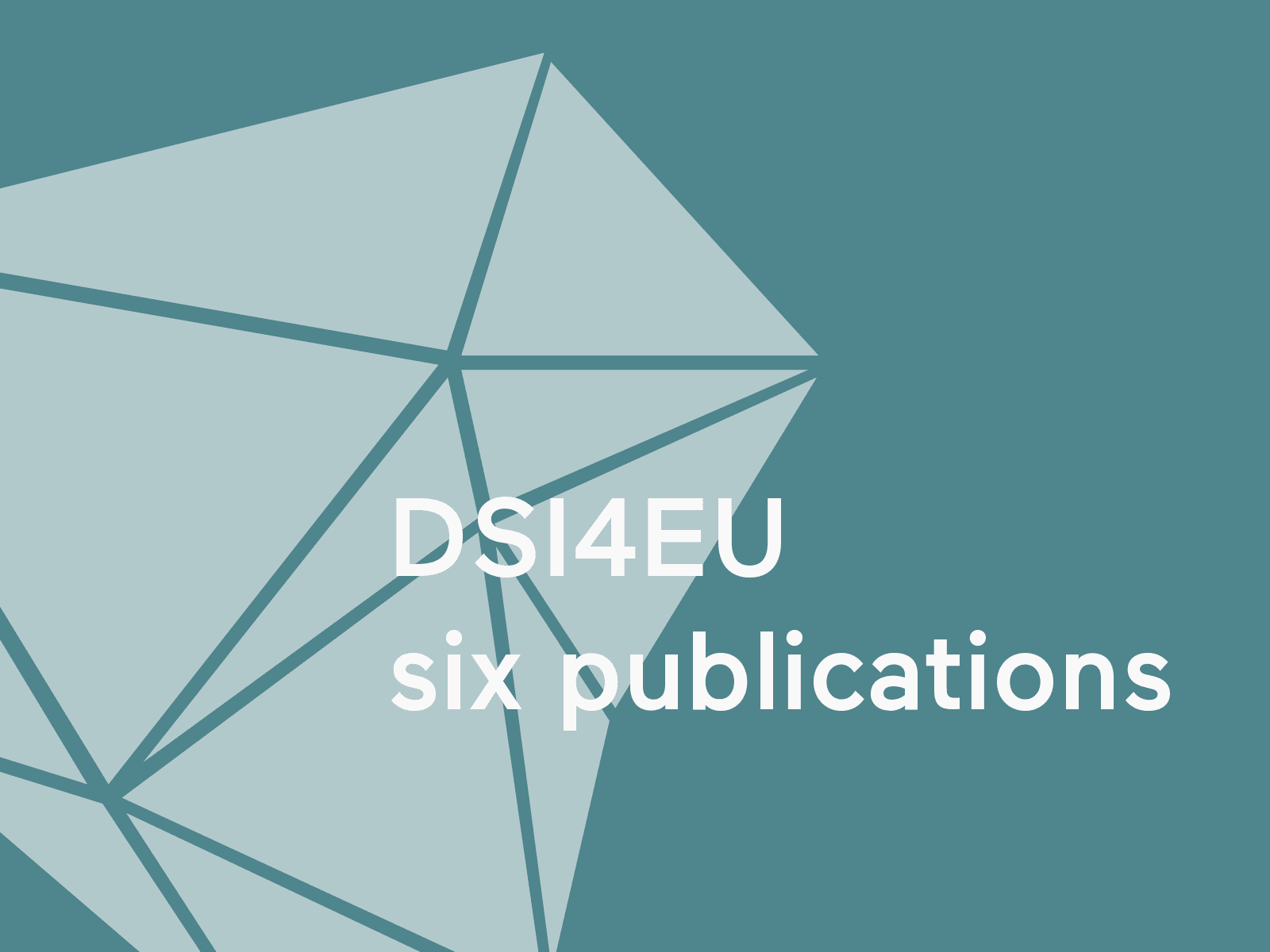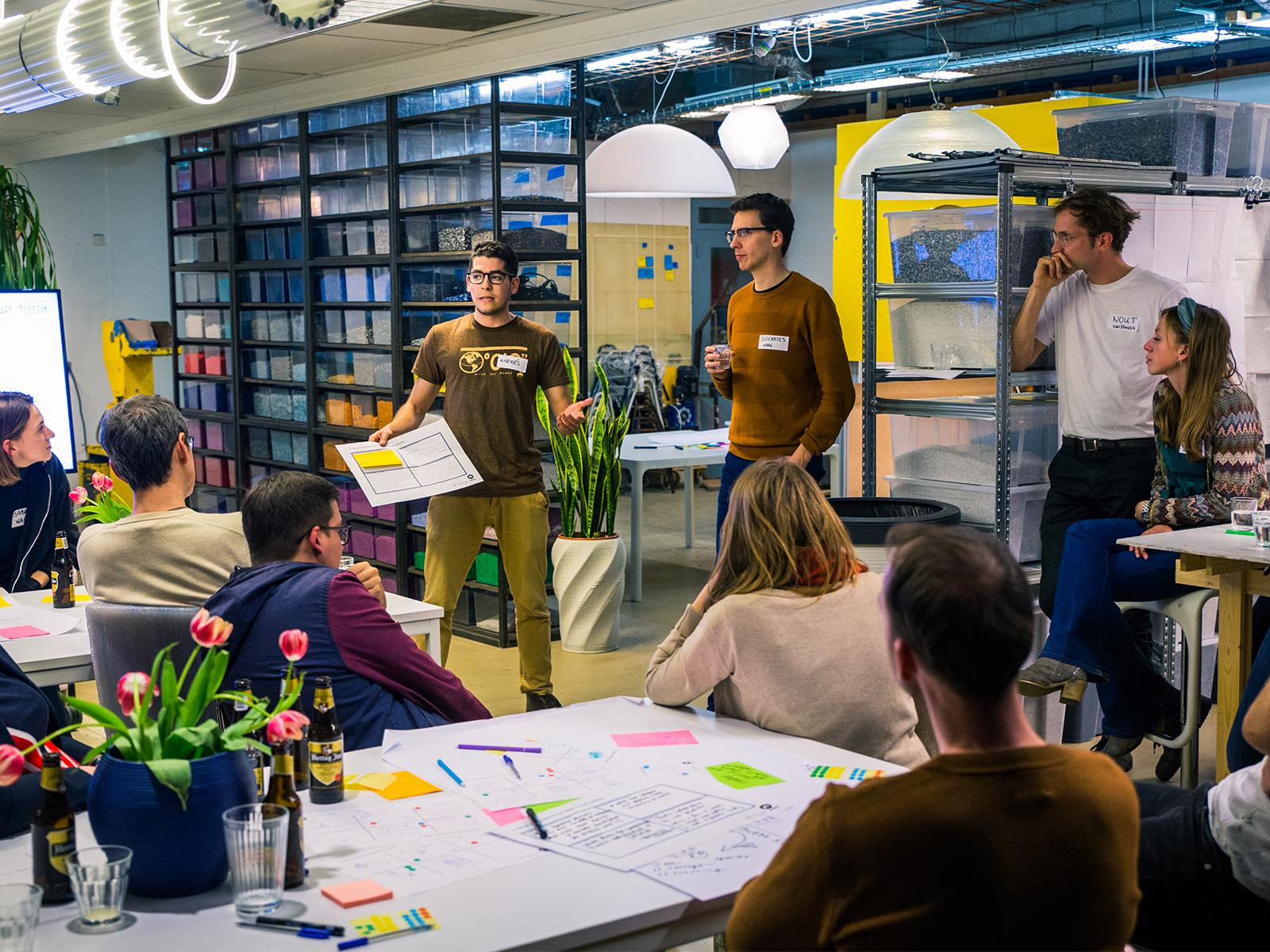Many people, including me, have high hopes for Digital Social Innovation. The traditional models of innovation, to be blunt, have failed us on many fronts. They prove, on the long run, to be disastrous for the planet, for economic equality, for social cohesion and for our sense of self and belonging, by focussing on the economic dimensions and the short run alone. Like Jaromil has said: "There exists a void. We need new stories, we need a new vision, maybe even a new Europe, to guide and inspire us."
Digital Social Innovation can be such a story. In the margins, experiments take place, communities are built, alternatives are wrought. If you listen closely to the many examples that we have seen today, a new innovation paradigm is emerging on top of the old. A paradigm that is putting people and their dreams, desires and possibilities first; focussing on the long term; working with nature, not against it; not protecting property rights, but sharing ownership and learnings. From these projects and their stories, it becomes clear that viable alternatives are possible, as is change, as is a future that is brighter than today.
I took away some learnings that I’d like to share. First of all, DSI initiatives need to start from real, personally felt problems that are also opportunities like inequality, skewed power and wealth distributions, ageing, migration, pollution and the ensuing health risk. Technology might be part of the solution – and many here like technology – but only in a mix with other ways to mobilize people.
To enhance the impact of DSI, projects have to learn from examples that might generate mixed reactions, like Über or even Facebook – like Geoff Mulgan remarked. DSI projects need a good, snappy story, they need simplicity in their interfaces, they need more aggressive public affairs. They need to solve citizens demands in (nearly) real-time, and might need to accumulate more capital, more value, than they currently have.
Also, we need to connect to, or at least learn from, older, existing ways that have traditionally counterbalanced asymmetric power structures. Labour unions, political parties, Greenpeace, even religious organisations. They have shown to be able to sustain & engage people for quite a long time.
Finally, the EU itself needs to listen, and change its procurement regulations, favouring small, experimental organisations over the incumbents; changing bureaucracies that David Cuartielles from Arduino has so keenly voiced. Policies that favour privacy by design, open source, open access, open knowledge. And plainly by allocating more funds, counterbalancing the enormous recourses that go into traditional forms of innovation.
Many drops form a river. A spark, rightly kindled, can grow into a huge fire. I believe the time is ripe for DSI to raise its impact, and I believe that many of the people that can do this are either in this room or just one mouse-click away. After identifying thousands of examples, with the learnings a great number of practitioners, it is about time we team up. Together we can increase the impact of DSI, and maybe turn its principles into a blueprint for a new society. It has been said before: Never waste a good crisis – time is on our side.


